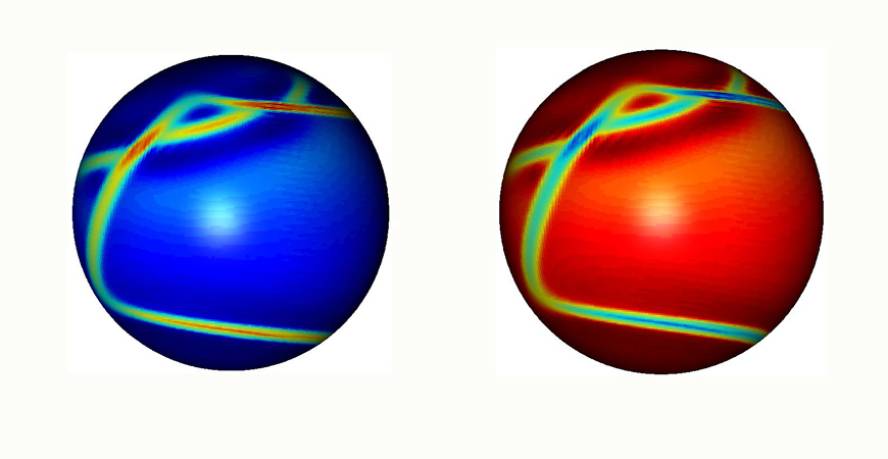They explain how the tectonic plates were formed
In 1960 the theory of plate tectonics was demonstrated, but to date there has been no consistent explanation of the formation of these plates. David Bercovici, of the Department of Geology and Geophysics of the University of Yale, and Yanick Ricard, of the University of Lyon, have an explanation. The microscopic characteristics of the minerals that form the surface of the Earth are, according to them, the key to understanding this fact of such a large scale.
Going back 4,000 million years, the current structure of plates on Earth still did not exist. The skin was dilated and contracted continuously on the lower mantle due to pressure and temperature. The response of the minerals that composed the crust to this situation determined the appearance of weak points in some areas. Where the minerals were distributed in crystals or smaller grains, the skin became thin and weak and went sinking into the mantle. That is, there was a subduction process in these places, with which fractures were produced on the surface. These fractures or cracks are the limits between the current plates.
The Earth is the only one on the planet of the Solar System shaped like a plate on its surface. On the contrary, Venus does not have, although its size is similar, although it arose in similar circumstances and conditions. The reason is the temperature. The crust of Venus is very hot and there was no process of sinking and rooting that caused plates on Earth. In Venus, due to heat, mineral particles come together again to avoid the appearance of weak spots on the skin and, consequently, the absence of plates and tectonic movements.
To carry out the research, Bercovici and Ricardo have developed a mathematical model based on the conditions of the surface of the Earth and the mineral structure of millions of years ago. The model has taken into account, in addition, the existing pressure on the bottom of the surface, the low, since it was one of the causes of the sinking of the surface in the mantle. The article that includes this conclusion has been published in the journal Nature.






